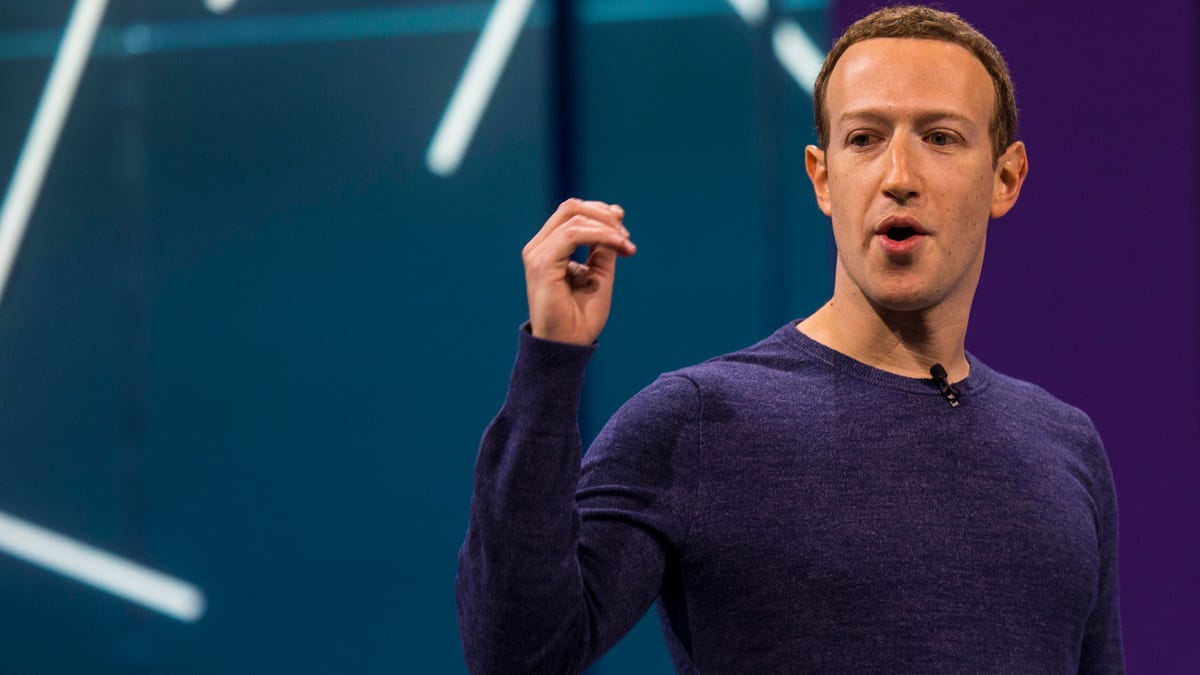Facebook CEO Mark Zuckerberg pushes back against claims of anti-conservative censorship
Zuckerberg says Facebook wants to be a "platform for all ideas."

Mark Zuckerberg: Facebook isn't biased.
CEO Mark Zuckerberg reiterated that Facebook wants to be a "platform for all ideas," his latest defense against concerns that the social network has too much power to shape political and social issues. Zuckerberg, in an interview with Fox News aired Friday, said worries that Silicon Valley is biased against conservative voices are understandable but added he'd seen no evidence of it.
The tech mogul acknowledged that California's largely left-leaning population could raise concerns. Still, he noted that many conservative media outlets do "quite well" on social media.
"I understand why people would ask the question of 'are my ideas getting a fair shake,'" Zuckerberg said. "And all that I can say on this is this is something I care deeply about. I want to make sure we can be a platform for all ideas."
The comments come a day after Zuckerberg delivered a full-throated defense of Facebook's policies in a speech at Georgetown University in Washington, DC. Facebook has faced mounting criticism over whether it's doing enough to combat hate speech, misinformation and other offensive content. The company has been accused of vague policies and inconsistent application of its rules. That's led to charges the company is censoring some forms of speech, particularly from conservative voices, an allegation Facebook denies.
Earlier this month, Sen. Kamala Harris, a Democrat from California, asked Twitter to suspend President Donald Trump's account, arguing that his tweets violated the site's rules against bullying. The presidential candidate cited several tweets from Trump, including some she said targeted a whistleblower whose complaint about Trump's call with Ukraine's president led to an impeachment inquiry.
When asked if it's a "ridiculous idea" for Twitter to shut down Trump's account, Zuckerberg said that he doesn't think people in a democracy want a private company censoring the news.
"I generally believe that as a principle, people should decide what is credible and what they want to believe, who they want to vote for," he said.
Facebook also recently came under fire for a policy that allows politicians to include falsehoods in their advertisements. Elizabeth Warren, a Democratic presidential hopeful who's called for the breakup of Facebook, tested that policy, placing an ad with a deliberate falsehood that said Zuckerberg had endorsed Trump. The ad also corrected itself. Zuckerberg has publicly defended the policy about politicians' ads, arguing that people should be able to see what politicos are saying and that political speech is already heavily scrutinized.
Ahead of the 2020 election, Facebook said it's increased its investment in election security, used artificial intelligence to spot fake accounts, verified political advertisers and partnered with government and the intelligence community.
"You're still able to say controversial things if you want, but you have to stand behind them with your real identity and face accountability," he told Fox News.
The battle over free speech is just one of Facebook's growing number of problems. Politicians and regulators around the world have blasted its plans for a cryptocurrency, dubbed Libra. (Zuckerberg is expected to discuss Libra during congressional testimony next week.) Facebook's dominance in social networking has led to allegations that it engages in monopolistic behavior. And the company's privacy policies remain a constant source of controversy.
The Federal Trade Commission hit Facebook with a record $5 billion fine for its alleged privacy mishaps after revelations surfaced that UK political consultancy Cambridge Analytica harvested the data of up to 87 million Facebook users without their permission.
Zuckerberg said Facebook is building a more "rigorous" privacy program, with more than 1,000 people working on the project. The company will be doing the same audits and "internal controls" around people's personal data as it does for financial data and information within Facebook.
"In the past we've made mistakes, and we need to make sure that we can earn people's trust," Zuckerberg said. "And we'll do that by operating at a level of rigor and having a privacy program that sets a new standard for the industry."
Originally published Oct. 18, 11:39 a.m. PT.
Update, 12:22 p.m.: Adds more remarks from Zuckerberg's interview.

